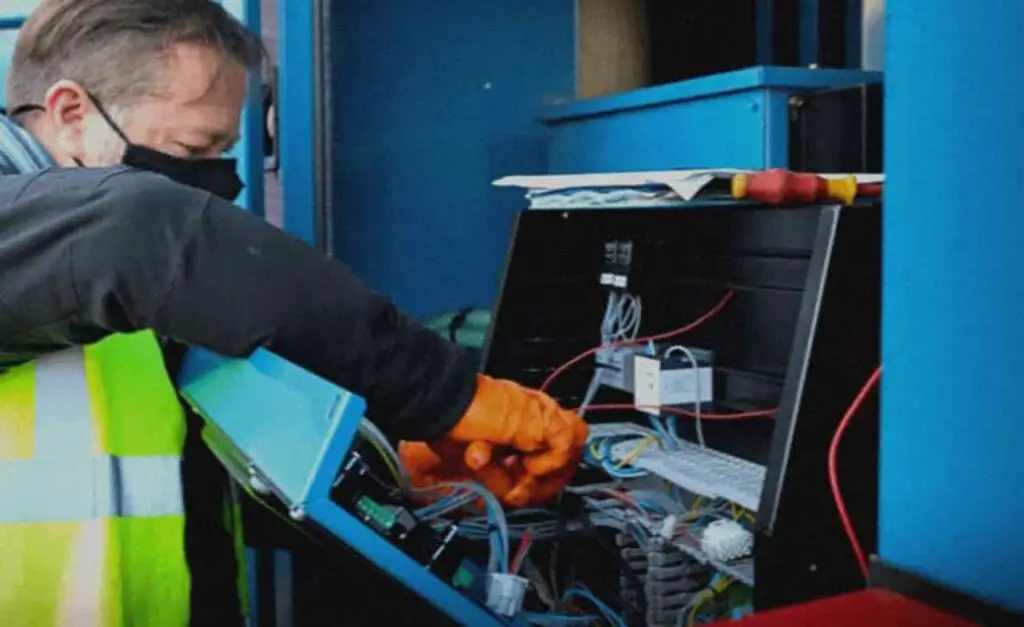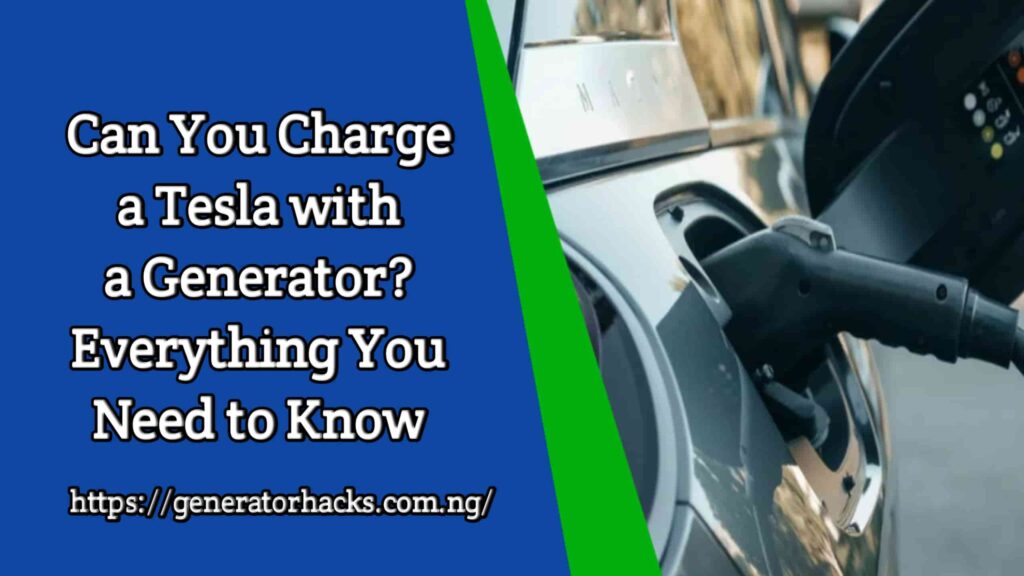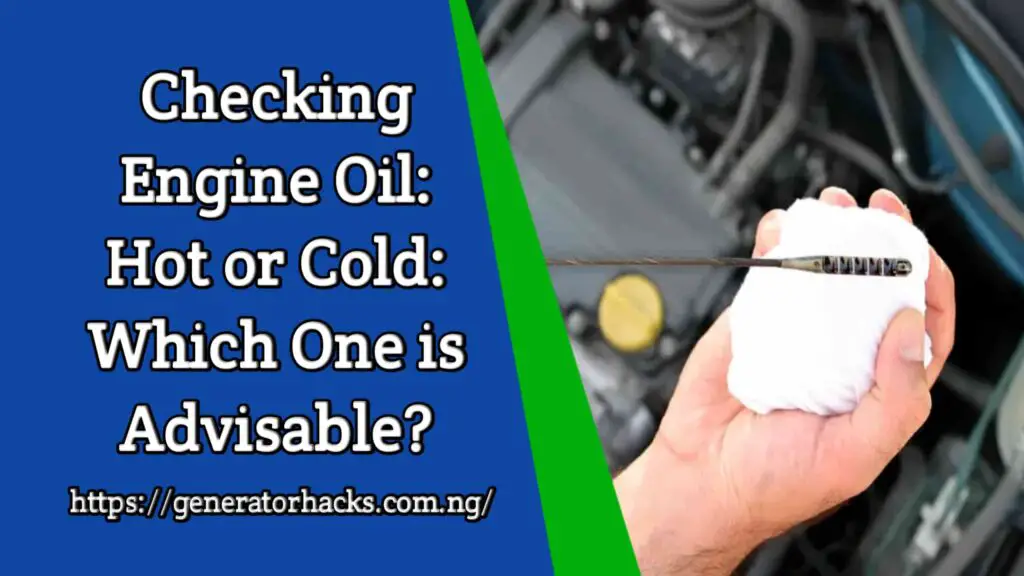As an Amazon Associate, we earn from qualifying purchases. This does not affect the price you pay or the quality of the products you buy. For more information, please read the full affiliate disclosure here.
If your generator shuts off after 20 minutes of use, you’re not alone. This is a common problem that various factors can cause.
Fortunately, with some troubleshooting, you can usually identify and fix the problem quickly.
Over the years of repairing generators as a generator repairer, one of the possible causes of a generator shutting off after 20 minutes I noticed is as a result of the generator being overloaded.
Why does that happen? Let’s say you’re trying to power too many appliances at once, but your generator may not be able to handle the load due to the pressure mounted on the generator. It might shut off. Sometimes, it usually damages the generator coil/alternator.
To fix this problem, try disconnecting some of the appliances and see if the generator runs longer.
If it does, you may need to invest in a larger generator or use fewer appliances at once.
Other possible causes might cause your generator to shut off apart from the abovementioned one which is overloading.
And if your generator shuts off not because you overload it, the other causes listed below might be the cause.
So, in this article, I’ll talk in more detail about the factors that might cause your generator to shut off after 20 minutes before the intervention of a professional.
Why Does Your Generator Shut Off After 20 Minutes?
The truth is that, despite being a generator repairer, I’ve been in your shoes countless times after servicing a generator, only for it to shut down after 20 minutes of working and leaving the generator’s location.
Due to my experience dealing with such problems, it’s sometimes frustrating; it shows some symptoms before shutting off. What are those symptoms?
The Symptoms
Depending on the size and type of generator, the symptoms of a generator shutting off after 20 minutes can vary, but some of the most common I’ve experienced include:
- The generator starts up fine but shuts off after running for only 20 minutes.
- The generator may shut off suddenly without any warning.
- Sometimes, the generator may sputter or surge before shutting off.
IMPORTANT READ:- Generator Surging: Causes and Solutions
What Might Be The Possible Causes
Based on the different symptoms listed above, several possible causes might cause this problem, including:
| Possible Causes | Description |
|---|---|
| Low oil level | If your generator is low on oil, it might trigger the low oil level sensor and may shut off after running for less than 20 minutes or more. |
| Dirty air filter | A dirty air filter can restrict the airflow to the engine, causing it to shut off. |
| Faulty spark plug | A faulty spark plug can cause the engine to misfire and shut off. |
| Fuel system issues | Problems with the fuel system, such as a clogged fuel filter or bad fuel pump, can cause the generator to shut off. |
| Overloading | Overloading the generator can cause it to shut off to protect itself. |
How to Troubleshoot a Generator That Shut Off After 20 Minutes

So, after knowing the possible reasons why your generator shuts off after 20 minutes, here are some troubleshooting steps that you can take to diagnose and fix the problem:
Fuel Check
The first step in troubleshooting this problem is for you to check the fuel supply. In that case, I will advise you to ensure that there is enough fuel in the tank and that the fuel is clean.
If the fuel is contaminated or old, it can cause the engine to shut off. But if it’s not contaminated or old, you can check the fuel filter or valve to see if it is clogged.
As a general rule, a clogged fuel filter and fuel valve can restrict the flow of fuel to the carburetor, causing it to shut off as a result of not combusting as needed.
Air Filter Inspection
After checking your generator’s fuel to see if it’s flowing into the carburetor as needed, you should also check the air filter.
The air filter is an essential part of the generator’s engine. If the air filter is dirty or clogged, it can cause the engine to shut off. In that case, inspect the air filter and clean or replace it as needed.
When you clean the air filter as required, it ensures that the generator engine gets enough air, which is necessary for combustion.
ALSO READ:- How to Clean Generator Air Filter in 8 Simple Ways +Video
Spark Plug Evaluation
Something, the spark plug, might be faulty and also cause your generator to shut off. The spark plug ignites the fuel in the engine’s combustion chamber.
In the case of your generator spark plug developing a fault, inspect the spark plug and clean or replace it as needed. Also, check the spark plug gap to ensure that it is correct.
Oil Level Assessment
Some generators also come with a Low oil sensor. Sometimes, I noticed that the sensor itself does have an issue.
But in cases where it doesn’t have an issue if your generator has a low oil level, it can cause the engine to shut off.
In that case, check the oil level and add more if needed. Also, check the oil for signs of contamination or metal shavings.
If you notice any of these signs, it may indicate a more severe problem, and you should take the generator to a qualified technician for service.
But if you see your generator oil level is okay and there’s a low light on the generator panel, the sensor might be the cause.
To solve the issue, locate the generator sensor wire and disconnect it until you visit a professional to help you change it.
But if there’s nothing wrong after troubleshooting, and the problem persists, it may indicate a more severe issue, and you should seek the help of a qualified technician.
Maintenance Tips to Prevent Your Generator From Shutting Off
One thing I love about regular maintenance is that it prevents unknown issues from happening. It helps me identify common issues that might become complex problems fast.
That’s why I love advising my readers and customers to always maintain their generators. But what are the best ways to keep your generator? Here are some maintenance tips.
Regular Cleaning
First, you should always carry out regular cleaning by making sure your generator is always cleaned.
Dirt, debris, and other contaminants can accumulate on the generator’s surface and clog its air filters, carburetor, and fuel tank.
This can cause the generator to overheat and shut off automatically. So, it is crucial to clean the generator regularly to prevent these issues.
I use a soft-bristled brush to remove dirt or debris from the generator’s surface. I also use a damp cloth to wipe down the generator and remove stubborn stains.
Additionally, I check the air filters regularly and replace them if they are dirty or clogged. And also service the carburetor and clean the spark plug.
ALSO READ:- How to Stop Fuel Leaking from Carburetor in 8 Steps + Video
Timely Oil Change
Apart from cleaning your generator frequently, changing the oil is very important.
The oil in your generator plays a vital role in keeping its engine lubricated and running smoothly.
Over time, the oil can become dirty and lose its lubricating properties, causing the engine to overheat and shut off automatically, especially if the generator is blowing out white smoke.
Therefore, you must always check and change the oil in your generator regularly.
I usually change the oil in my client’s generator every 100 hours of use or at least once a year, whichever comes first.
However, where people miss it is that they only change the oil and always forget the oil level of their generator. These have got many generator damage beyond repair.
I advised you to always check your generator oil level before starting it, especially when it is blowing with smoke. By doing that, you would know if your generator oil needs changing or adding, as the case may be.
Scheduled Inspection
Always have a specific time you regularly inspect your generator and ensure that all its components are working correctly.
For instance, you can schedule a regular inspection apart from other routine maintenance tips mentioned here for at least every six months whether or not you use the generator.
In that case, you can decide to check the battery if it’s using one. You can also check the oil seal and other major generator parts to see if they are still intact as needed.
When to Seek Professional Help
You have done all that is needed, but if your generator doesn’t start for more than 20 minutes of operation, then it may be time to seek professional help. Here are some of my reasons why you should.
1. Persistent Issues
If you have tried troubleshooting your generator and it still shuts off after 20 minutes, it may be a sign of a persistent issue.
Various factors, such as faulty wiring, a damaged fuel tank, a valve or a malfunctioning ignition, could cause this. These issues may require specialized tools and expertise to diagnose and fix.
2. Lack of Expertise
If you do not have experience working with generators, it may be challenging to diagnose and fix the problem on your own.
Attempting to do so could result in further damage to your generator or even personal injury.
In this case, it is best to seek the help of a qualified technician who can diagnose and fix the issue safely and efficiently.
When seeking professional help, choose a reputable and experienced technician who can provide quality service.
This may involve researching local service providers, requesting recommendations from friends or family, or reading online reviews.
Remember, safety should always be your top priority when working with generators. If you are unsure of how to diagnose or fix an issue, it is always better to seek professional help than to attempt to do it yourself.
IMPORTANT READ:- Generator Repair Cost Estimation: How Much Does it Cost to Repair Generator?
Share


